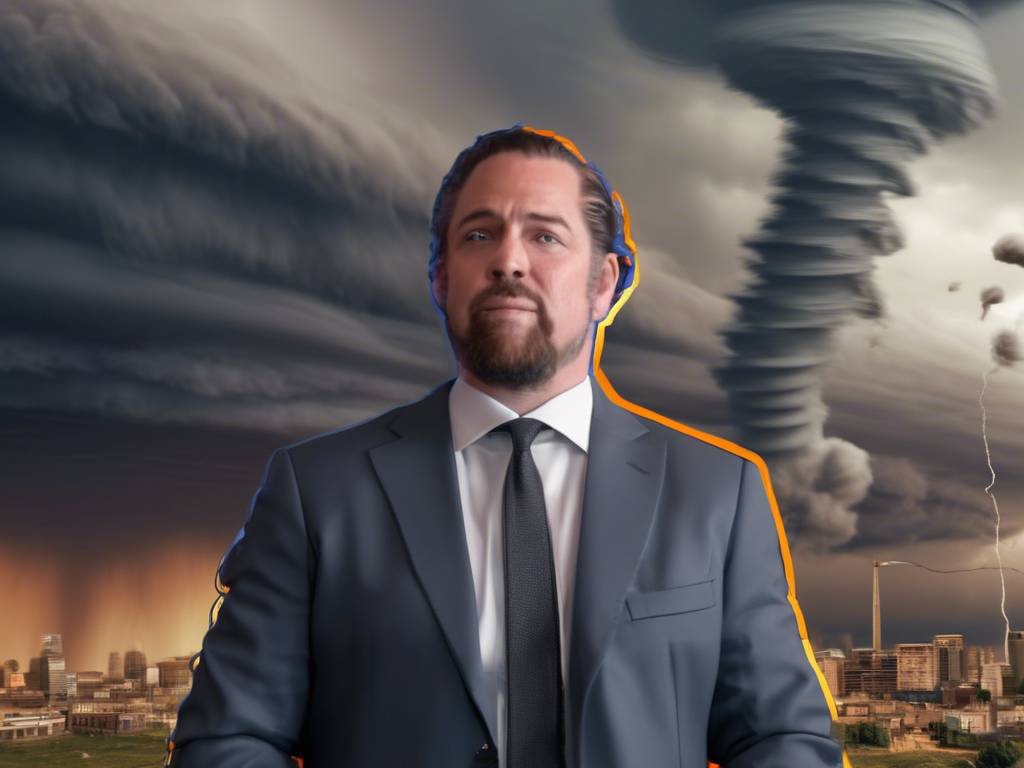Deep Dive into the Legal Battle Surrounding Tornado Cash
As a crypto enthusiast, you’ve likely heard about the legal woes surrounding Roman Storm, the developer and co-founder of Tornado Cash. The charges against him have raised significant legal questions about the nature of his involvement and the legality of his actions. Let’s take a closer look at the key arguments and defenses presented in this case:
The Indictment and Charges
- Roman Storm faces one count of conspiracy to commit money laundering.
- He also faces one count of conspiracy to violate the International Economic Emergency Powers Act.
- Lastly, he is charged with conspiracy to operate an unlicensed money transmitting business.
The Defense’s Arguments
- Storm’s lawyers have argued that writing code can be considered protected speech under the First Amendment.
- They questioned the definition of Tornado Cash as a money transmitting business, citing the lack of control users had over their coins and the absence of fees charged by Tornado Cash.
- The defense also highlighted that Storm relinquished control of Tornado’s smart contracts before the alleged criminal conduct took place.
A Closer Look at the Legal Battle
The legal battle surrounding Roman Storm and Tornado Cash has sparked intense debate within the crypto community. Here are some key points to consider:
First Amendment Defense
The argument that writing code is a form of protected speech under the First Amendment raises important questions about the boundaries of legal liability in the context of software development.
Precedent Setting Case
- This case has the potential to set a precedent for how software developers are held accountable for the use of their creations.
Definition of a Money Transmitting Business
The controversy surrounding Tornado Cash’s classification as a money transmitting business highlights the complexities of regulatory frameworks in the crypto space.
User Control and Fees
- The fact that users did not relinquish control of their coins and were not charged fees by Tornado Cash challenges traditional definitions of money transmitting businesses.
Tornado Cash’s Decentralized Nature
The decentralized nature of Tornado Cash, particularly the lack of centralized control, raises questions about the extent to which developers can be held responsible for the actions of users.
Legal Defense Fund
- The outpouring of support and fundraising efforts within the DeFi community demonstrate the high stakes involved in this legal battle.
Hot Take: Exploring the Ramifications
How could Roman Storm conspire with criminals if he relinquished control of Tornado Cash before the criminal conduct occurred? How could Tornado Cash be considered a money-transmitting business if it never charged a fee? And isn’t writing code protected speech under the First Amendment anyway?
These are critical questions that highlight the complex legal and ethical issues at play in the case of Tornado Cash and its developers. As the legal battle continues to unfold, the outcome could have far-reaching implications for software developers and the broader crypto community.





 By
By
 By
By
 By
By
 By
By
 By
By
 By
By